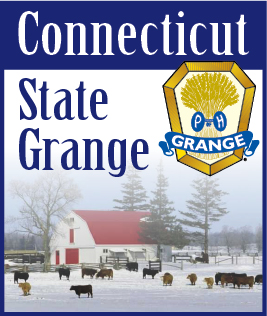| OCTOBER 2009 -- After many months of debate and negotiations, the State finally has a budget for the next two years. The one thing everyone can agree on is that no one is completely happy with the budget. But passing the budget is one thing; having it work is something else. The budget is like a family deciding how to spend its future paychecks. Many assumptions have to be made. If the assumptions are correct, all is well. If they are not, the budget will not work.
The first assumptions are where the money will come from. A family assumes their paychecks will continue at their present level, but if hours are cut or someone in the family is laid off, the money is not there to spend. The State assumes taxes will produce a certain amount of money, but if people’s income goes down, so does the income tax they will pay. If people do not have the money to spend, sales will decrease and the revenue from the state sales tax will also decrease.
When the family’s income goes down, they have to cut back on their spending. When the State’s tax receipts go down, the State has to cut back on its spending. The next assumptions are how their money will be spent. A family budgets for essential expenses such as housing, food and clothing. Depending on their priorities, the family then budgets for savings, medical care and their children’s education. Finally the family budgets for things they would like but are not essential, such as recreation and vacations. If the family’s assumptions are good, their budget works. But if the cost of heating their house or the cost of groceries goes up more than they anticipated, they have to cut back on something else. The State has to make similar assumptions. If the cost of heating the state’s buildings or the cost of food to feed the inmates in the prisons goes up more than the General Assembly anticipated, cuts have to be made in other areas. Without a doubt, the 2010 General Assembly will have to look at how the budget is working and make whatever adjustments are needed. But this is only part of the budget process. After the family budgets their current income, they may look at how much they can borrow for home improvements, a new car or whatever else they need or want. The State is no different than the typical family.
Now that the budget for current income has been set, the General Assembly is looking at how much the State should borrow for many things. The State borrows money by issuing bonds which are sold in the open market. The General Assembly sets a limit on how many bonds can be sold and what the money from those bonds will be used for by authorizing the sale of the bonds. There is no guarantee what interest rate the bonds will sell at until they are offered in the market, but the more bonds that are authorized, the higher the interest rate the market will demand. The General Assembly can choose any amount they want, but the bonds are not sold until the State Bond Commission approves the sale of the bonds. Normally, the State Bond Commission approves the sale of the bonds in smaller amounts than the total authorized to cover expenses for the next few months. This is similar to a family having a home equity loan they can use as they need it, or charging purchases on their credit card. There is a credit limit which is the maximum amount the family can borrow, but if they are prudent they borrow or charge only what they need to. Just like a family, when current income is not enough to pay current bills, there is a temptation for the State to borrow money to pay the bills. And just like a family, the day of reckoning will come when the money borrowed to pay the bills must itself be paid. Then both the family and the State face the same problem: How will they pay the piper? All they can do today is hope they will have the money when that day of reckoning arrives. |
